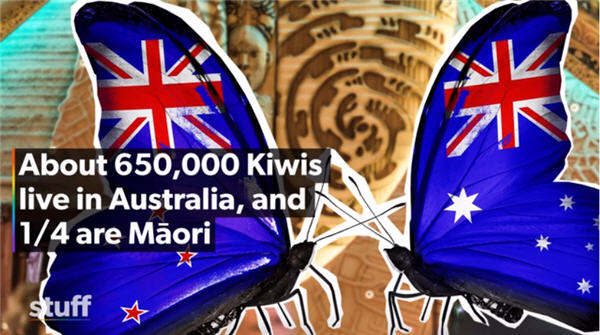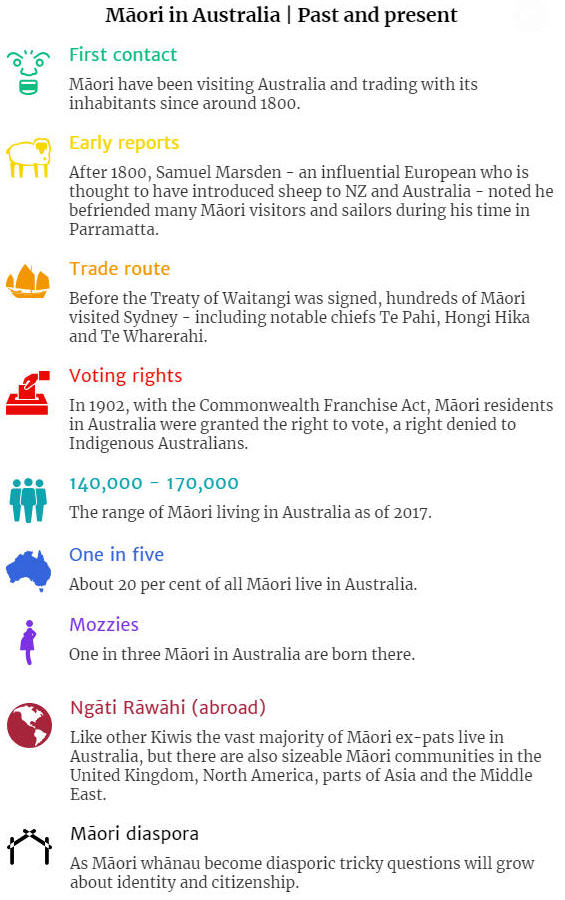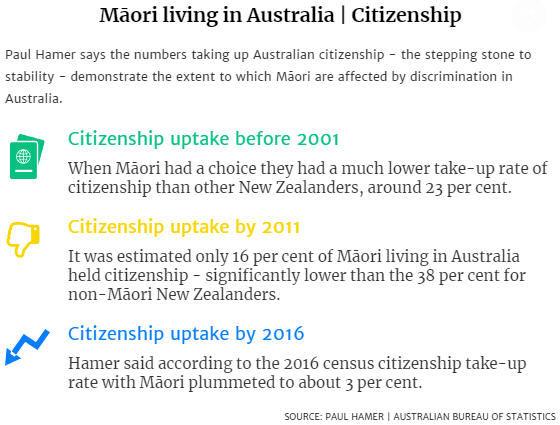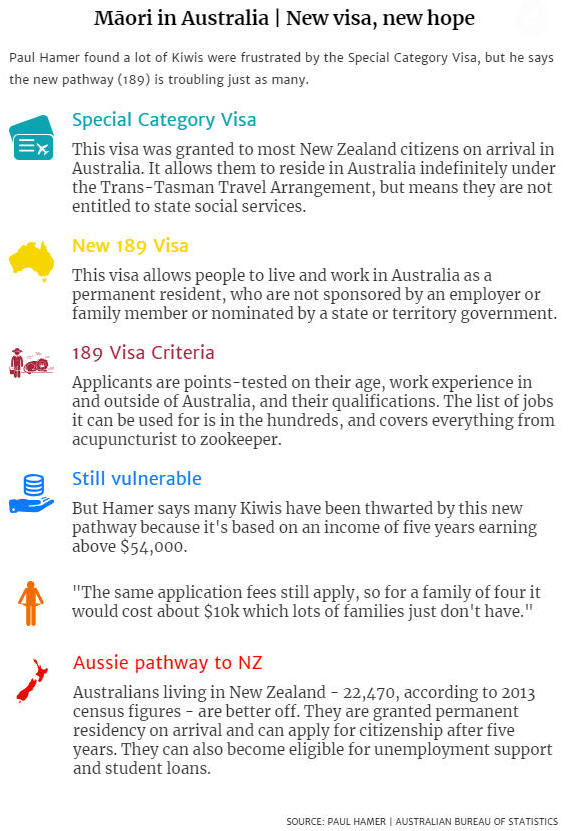Discrimination across the ditch

13 October 2018
Brad Flahive - Stuff
Nicola Adams always carries around her heaviest moment with her - the remains of her one-year-old son Alaska sit in a backpack and it goes everywhere she does. New Zealand-born Adams (Ngāpuhi) crossed the Tasman seeking sunshine and fortune in Western Australia, but life turned dark when her son died suddenly in 2013.
Adams draws on her experience living in Western Australia to help whānau get off drugs and alcohol to keep their children. She has since turned her life around, but still has a tough time seeing her children. She is a now motivational speaker with a significant following in New Zealand and Australia.

Her story has roots to that of many young Kiwis, particularly Māori and Pasifika, that fall through the gaps of Australia's unique visa relationship with New Zealand.
No support for kiwis
Historian and researcher Paul Hamer, who has studied the migration of Māori to Australia, said there is little to no support for New Zealanders who find themselves in trouble across the ditch. As part of his PhD thesis Hamer conducted a survey of about 850 Māori residing in Australia which revealed several key categories troubling Māori with non-protected special category visas.


Discrimination at Government level
Jo Kamira (Ngāpuhi) has lived in Australia most of her life, and Canberra for 25 years. During the 90's she helped lobby the Australian government to include Māori in the census count. It was changed in 1996. “With the number of Māori now here, it wouldn't be beyond the realms of possibility for us to be represented in government for our unique issues over here.”
Kamira believes discrimination is at its worst at state and federal level. “The Australian government does not want to help our people,” she said.
[Read the full Stuff article].